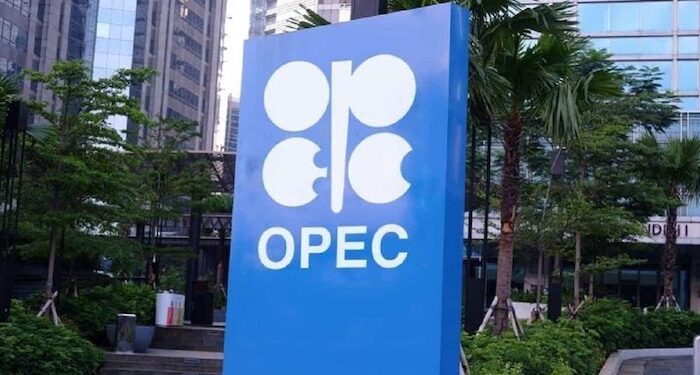The Organisation of Petroleum Exporting Countries (OPEC) reduced its crude oil production last month, with Nigeria contributing the largest cut of 50,000 barrels per day (bpd), undermining the country’s ambitious 2025 budget target of 2.06 million bpd. A Bloomberg survey revealed that Nigeria’s production dropped to an average of 1.5 million bpd in March, aligning with its OPEC quota, amid disruptions caused by delays in loading its Bonny Light crude grade.
The overall reduction in OPEC’s output amounted to 110,000 bpd, bringing the cartel’s production to 27.43 million bpd. While OPEC leaders continue to urge members to adhere to agreed production quotas, several countries, including Nigeria, have been reported to over-produce. However, OPEC’s data excludes condensates, which typically add about 250,000 bpd to Nigeria’s total output.
Pipeline Attack and Political Tensions Fuel Production Challenges
Nigeria’s oil production was further impacted by an attack on the Trans-Niger Pipeline, one of the country’s most crucial oil transport routes. On March 17, militants targeted a section of the pipeline, causing an explosion. The Trans-Niger Pipeline is vital for transporting oil from the Niger Delta, contributing over 450,000 bpd, primarily to the Bonny Terminal in Rivers State. The attack follows a series of similar incidents, with militants frequently sabotaging this pipeline, leading to substantial revenue losses. The Nigerian government has since taken measures to stop these attacks and mitigate the resulting disruptions.
The sabotage, combined with Nigeria’s decline in crude oil production from 1.54 million bpd in January to 1.47 million bpd in February (a 4.81% drop), has raised concerns about the country’s ability to meet its 2025 budget target of nearly N55 trillion. February’s self-reported production decline of 74,000 bpd underscores the growing challenges Nigeria faces in stabilizing its oil sector.
OPEC+ Plans Gradual Production Increase Amid Global Oil Price Volatility
In response to slowing oil prices, OPEC+—led by Saudi Arabia and Russia—plans to gradually restore idled production this month to help stabilize global oil prices. The group aims to increase output by about 138,000 bpd, with additional gradual increases planned until late 2026. The decision follows pressure from U.S. President Donald Trump, who has called for OPEC to reduce oil prices.
The price of oil has also been impacted by geopolitical tensions, particularly the ongoing war in Ukraine and rising concerns over supply disruptions. U.S. President Trump recently threatened to impose secondary tariffs of 25% to 50% on Russian oil buyers if Moscow continues to block efforts to end the war. These tariffs, along with potential sanctions on Iran, have contributed to fears of further supply chain disruptions. As a result, Brent crude futures steadied at $74.73 per barrel, while U.S. West Texas Intermediate (WTI) crude dropped to $71.42 per barrel.
Impact of Global Supply Concerns on Oil Prices
A Reuters poll of economists and analysts suggests that oil prices will remain under pressure throughout 2025, driven by ongoing U.S. tariffs, economic slowdowns in major markets such as India and China, and increased supply from OPEC+. Despite these challenges, OPEC+ is determined to maintain production levels in order to support global oil price stability.
As Nigeria faces continued challenges in its oil production sector, including pipeline sabotage and OPEC-imposed cuts, the country’s financial outlook for 2025 remains uncertain, with significant implications for its budget and economic health.


